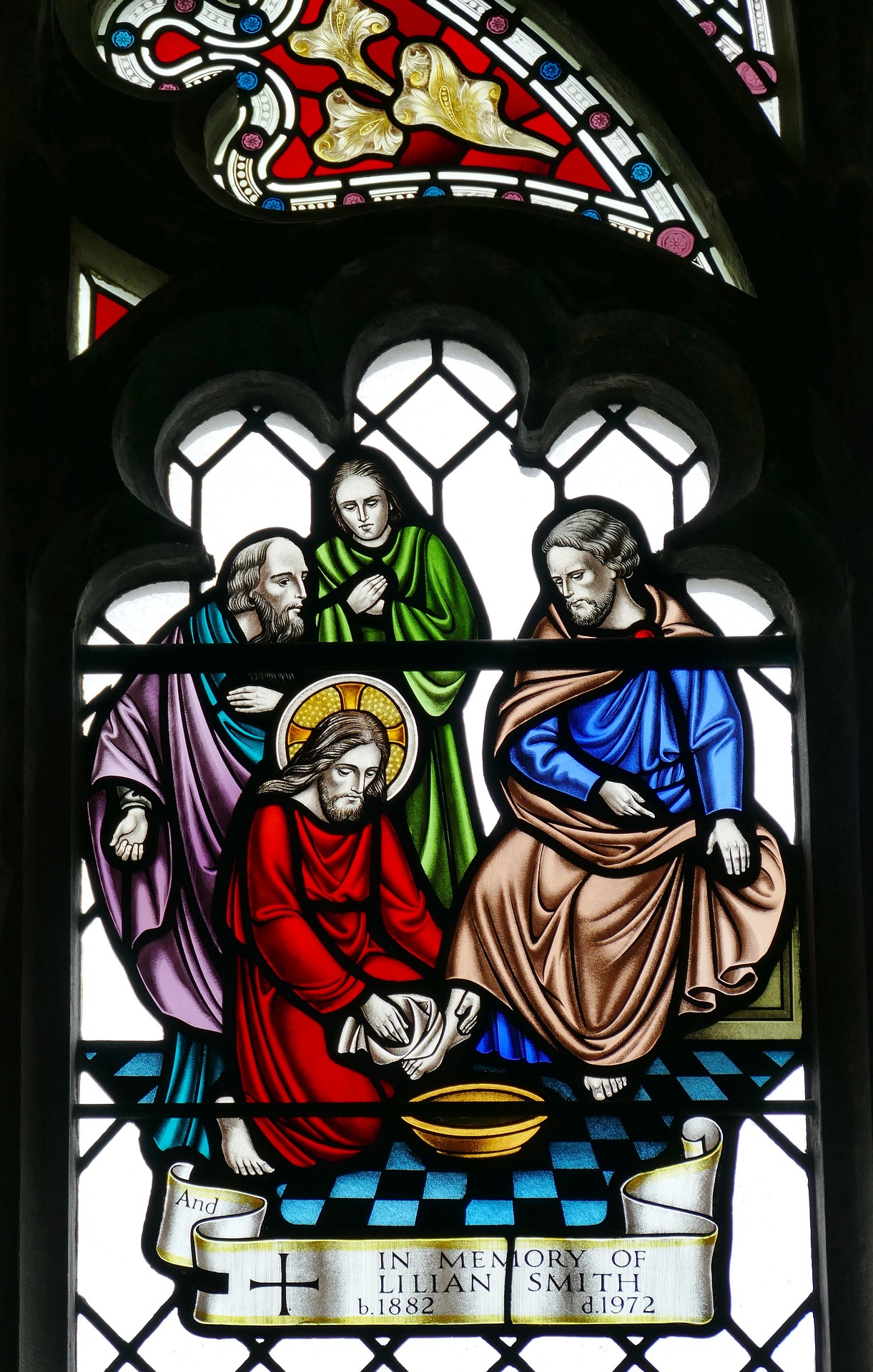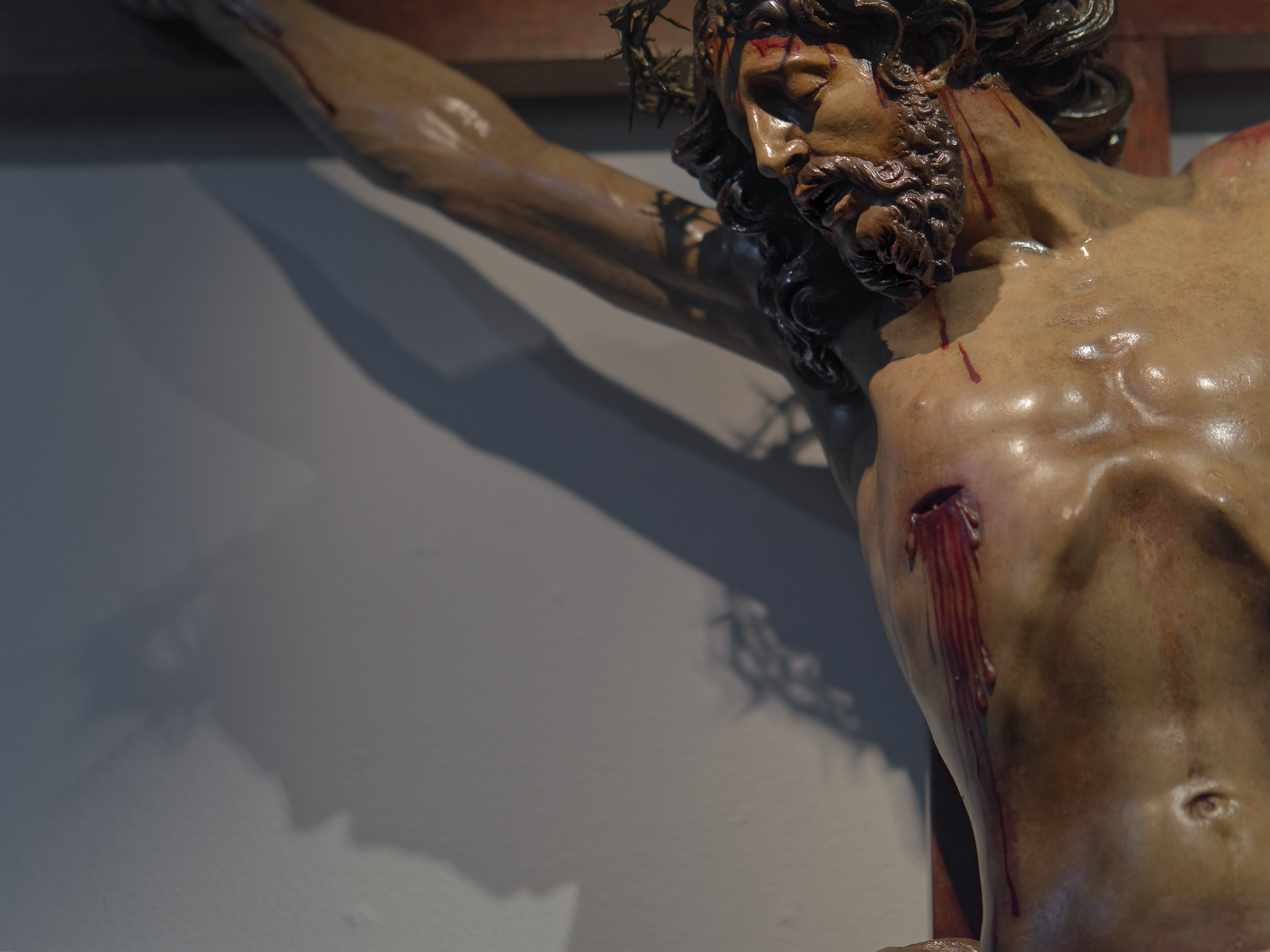In the Gospel of Luke today, Jesus calls Peter to follow him. While Jesus was asking Peter to fill a unique role in the Kingdom of God, (After all, there can only be one first Pope, right?) we can use the path that Peter follows as a guide for our own faith journey.
In Luke’s retelling, Jesus had already gained a following before assembling the group later called “Disciples”. This means that when Jesus asked Peter to use his boat to teach to the crowds, Peter had already heard of Jesus. He knew Jesus was drawing crowds. He allowed Jesus to use his boat and heard what Jesus had to say for himself. When Jesus told Peter to put the nets down one more time, Peter politely informed him that they had already been at work all night, but he humored Jesus and put the nets down one more time. The nets were overflowing and Peter acknowledged Jesus as more than just another prophet. “Leave me, Lord, for I am a sinful man.” Jesus called and Peter left everything to follow Him.
Peter heard about Jesus. Peter heard Jesus speak. Jesus asked Peter for something entirely doable and Jesus went beyond Peter’s expectations. Peter realized the only logical response to meeting God was to confess one’s sins, give up everything and follow Him.
Just like Peter, God doesn’t ask us for more than we can do and when we comply with his requests, God goes beyond our wildest expectations. We get ourselves up out of bed on Sundays, brush our teeth and head to Mass. God asks for just a bit of our time, and he responds with a total gift of himself; body, blood, soul, and divinity. God asks us to come to him when we have done wrong or sinned, and he responds with a free gift of grace and another opportunity to start again. Whenever we give just a tiny bit of ourselves, God gives us back so much more.
When faced with such goodness, such immense love, like Peter, there is nothing we should do except leave everything behind and follow. But leaving behind isn’t easy for us humans. Peter left behind his livelihood, his family tradition of fishing, the community of fishermen who had lived and worked together for generations. Once he encountered Jesus, he was willing to leave it all, to follow God’s plan. And just look at what came of that!
We can reflect on what we are to give up. What are those habits and ways of life which are comfortable and familiar, but to fully follow Jesus, we need to leave them behind? What are the habits of our current world, the mass media, the constant availability of dopamine-inducing content that hijack our brain and our time?
We have heard about Jesus. We have heard Jesus speak through others. Jesus is asking us to follow him. What we need to do, like Peter, is follow him completely.
En el Evangelio de Lucas de hoy, Jesús llama a Pedro a seguirlo. Mientras Jesús le pedía a Pedro que desempeñara un papel único en el Reino de Dios (después de todo, solo puede haber un solo primer Papa, ¿verdad?), podemos usar el camino que sigue Pedro como guía para nuestro propio camino de fe.
En el recuento de Lucas, Jesús ya había ganado seguidores antes de reunir al grupo que más tarde se llamaría “Discípulos”. Esto significa que cuando Jesús le pidió a Pedro que usara su barca para enseñar a la multitud, Pedro ya había oído hablar de Jesús. Sabía que Jesús estaba atrayendo multitudes. Permitió que Jesús usara su bote y escuchó lo que Jesús tenía que decir por sí mismo. Cuando Jesús le dijo a Pedro que bajara las redes una vez más, Pedro le informó cortésmente que ya habían estado trabajando toda la noche, pero le siguió la corriente a Jesús y bajó las redes una vez más. Las redes estaban desbordadas y Pedro reconoció a Jesús como algo más que un profeta más. “Déjame, Señor, que soy un hombre pecador”. Jesús lo llamó y Pedro dejó todo para seguirlo.
Pedro oyó acerca de Jesús. Pedro escuchó a Jesús hablar. Jesús le pidió a Pedro algo completamente factible y Jesús fue más allá de las expectativas de Pedro. Pedro se dio cuenta de que la única respuesta lógica para encontrarse con Dios era confesar los pecados, renunciar a todo y seguirlo.
Al igual que Pedro, Dios no nos pide más de lo que podemos hacer y cuando cumplimos con sus pedidos, Dios va más allá de nuestras expectativas más grandes. Los domingos nos levantamos de la cama, nos cepillamos los dientes y vamos a misa. Dios pide un poco de nuestro tiempo y responde con un don total de sí mismo; cuerpo, sangre, alma y divinidad. Dios nos pide que acudamos a él cuando hemos hecho algo malo o cuando hemos pecado, y él responde con un regalo gratuito de gracia y otra oportunidad para comenzar de nuevo. Cada vez que damos un poco de nosotros mismos, Dios nos devuelve mucho más.
Ante tanta bondad, tan inmenso amor, como Pedro, no hay nada que debamos hacer sino dejar todo y seguirlo. Pero dejar todo no es fácil para nosotros los seres humanos. Pedro dejó atrás su medio de vida, su tradición familiar de pesca, la comunidad de pescadores que habían vivido y trabajado juntos durante generaciones. Una vez que se encontró con Jesús, estuvo dispuesto a dejarlo todo para seguir el plan de Dios. ¡Y mira lo que salió de eso!
Podemos reflexionar sobre lo que debemos renunciar. ¿Cuáles son esos hábitos y formas de vida que son cómodos y familiares, pero para seguir completamente a Jesús, debemos dejarlos atrás? ¿Cuáles son los hábitos de nuestro mundo actual, los medios de comunicación, la disponibilidad constante de contenido inductor de dopamina que secuestra nuestro cerebro y nuestro tiempo?
Hemos oído hablar de Jesús. Hemos escuchado a Jesús hablar a través de otros. Jesús nos pide que lo sigamos. Lo que tenemos que hacer, como Pedro, es seguirlo completamente.
 Sheryl is happy to be the number 1 cheerleader and supporter for her husband, Tom who is a candidate for the Permanent Diaconate in the Diocese of Kalamazoo. They are so grateful for the opportunity to grow together in this process. Sheryl’s day job is serving her community as the principal for St. Therese Catholic School in Wayland, Michigan. Since every time she thinks she gets life all figured out, she realizes just how far she has to go, St. Rita of Cascia is her go-to Saint for intercession and help. Home includes Carlyn, a very, very goofy Golden Retriever and Lucy, our not-so-little rescue puppy.
Sheryl is happy to be the number 1 cheerleader and supporter for her husband, Tom who is a candidate for the Permanent Diaconate in the Diocese of Kalamazoo. They are so grateful for the opportunity to grow together in this process. Sheryl’s day job is serving her community as the principal for St. Therese Catholic School in Wayland, Michigan. Since every time she thinks she gets life all figured out, she realizes just how far she has to go, St. Rita of Cascia is her go-to Saint for intercession and help. Home includes Carlyn, a very, very goofy Golden Retriever and Lucy, our not-so-little rescue puppy.
Feature Image Credit: Pascal Müller, unsplash.com/photos/jyFynzFZ9-4


 Kathryn James Hermes, FSP, is the author of the newly released title
Kathryn James Hermes, FSP, is the author of the newly released title
 Susan Ciancio has a BA in psychology and a BA in sociology from the University of Notre Dame, with an MA in liberal studies from Indiana University. For the past 19 years, she has worked as a professional editor and writer, editing both fiction and nonfiction books, magazine articles, blogs, educational lessons, professional materials and website content. Thirteen of those years have been in the pro-life sector. Currently Susan freelances and writes weekly for HLI, edits for American Life League, and is the executive editor of Celebrate Life Magazine. She also serves as executive editor for the Culture of Life Studies Program—an educational nonprofit program for K-12 students. You can reach her at
Susan Ciancio has a BA in psychology and a BA in sociology from the University of Notre Dame, with an MA in liberal studies from Indiana University. For the past 19 years, she has worked as a professional editor and writer, editing both fiction and nonfiction books, magazine articles, blogs, educational lessons, professional materials and website content. Thirteen of those years have been in the pro-life sector. Currently Susan freelances and writes weekly for HLI, edits for American Life League, and is the executive editor of Celebrate Life Magazine. She also serves as executive editor for the Culture of Life Studies Program—an educational nonprofit program for K-12 students. You can reach her at 
 Tami Urcia grew up in Western Michigan, a middle child in a large Catholic family. She spent early young adulthood as a missionary in Mexico, studying theology and philosophy, then worked and traveled extensively before finishing her Bachelor’s Degree in Western Kentucky. She loves tackling projects, finding fun ways to keep her little ones occupied, quiet conversation with the hubby and finding unique ways to love. She works at for Christian Healthcare Centers, is a guest blogger on
Tami Urcia grew up in Western Michigan, a middle child in a large Catholic family. She spent early young adulthood as a missionary in Mexico, studying theology and philosophy, then worked and traveled extensively before finishing her Bachelor’s Degree in Western Kentucky. She loves tackling projects, finding fun ways to keep her little ones occupied, quiet conversation with the hubby and finding unique ways to love. She works at for Christian Healthcare Centers, is a guest blogger on 
 Leslie Sholly is a Catholic, Southern wife and mother of five, living in her hometown, Knoxville, Tennessee. She graduated from Georgetown University with an English major and Theology minor. She blogs at
Leslie Sholly is a Catholic, Southern wife and mother of five, living in her hometown, Knoxville, Tennessee. She graduated from Georgetown University with an English major and Theology minor. She blogs at 
 Deacon Dan Schneider is a retired general manager of industrial distributors. He and his wife Vicki have been married for over 50 years. They are the parents of eight children and thirty grandchildren. He has a degree in Family Life Education from Spring Arbor University. He was ordained a Permanent Deacon in 2002. He has a passion for working with engaged and married couples and his main ministry has been preparing couples for marriage.
Deacon Dan Schneider is a retired general manager of industrial distributors. He and his wife Vicki have been married for over 50 years. They are the parents of eight children and thirty grandchildren. He has a degree in Family Life Education from Spring Arbor University. He was ordained a Permanent Deacon in 2002. He has a passion for working with engaged and married couples and his main ministry has been preparing couples for marriage.
 Mike Karpus is a regular guy. He grew up in Michigan’s Upper Peninsula, graduated from Michigan State University and works as an editor. He is married to a Catholic school principal, raised two daughters who became Catholic school teachers at points in their careers, and now relishes his two grandchildren, including the 3-year-old who teaches him what the colors of Father’s chasubles mean. He has served on a Catholic School board, a pastoral council and a parish stewardship committee. He currently is a lector at Mass, a Knight of Columbus, Adult Faith Formation Committee member and a board member of the local Habitat for Humanity organization. But mostly he’s a regular guy.
Mike Karpus is a regular guy. He grew up in Michigan’s Upper Peninsula, graduated from Michigan State University and works as an editor. He is married to a Catholic school principal, raised two daughters who became Catholic school teachers at points in their careers, and now relishes his two grandchildren, including the 3-year-old who teaches him what the colors of Father’s chasubles mean. He has served on a Catholic School board, a pastoral council and a parish stewardship committee. He currently is a lector at Mass, a Knight of Columbus, Adult Faith Formation Committee member and a board member of the local Habitat for Humanity organization. But mostly he’s a regular guy.







 Kathryn Mulderink, MA, is married to Robert, Station Manager for Holy Family Radio. Together they have seven children (including Father Rob), and four grandchildren. She is President of the local community of Secular Discalced Carmelites and has published five books and many articles. Over the last 30 years, she has worked as a teacher, headmistress, catechist, Pastoral Associate, and DRE, and as a writer and voice talent for Catholic Radio. Currently, she serves the Church by writing and speaking, and by collaborating with various parishes and to lead others to encounter Christ and engage their faith. Her website is
Kathryn Mulderink, MA, is married to Robert, Station Manager for Holy Family Radio. Together they have seven children (including Father Rob), and four grandchildren. She is President of the local community of Secular Discalced Carmelites and has published five books and many articles. Over the last 30 years, she has worked as a teacher, headmistress, catechist, Pastoral Associate, and DRE, and as a writer and voice talent for Catholic Radio. Currently, she serves the Church by writing and speaking, and by collaborating with various parishes and to lead others to encounter Christ and engage their faith. Her website is